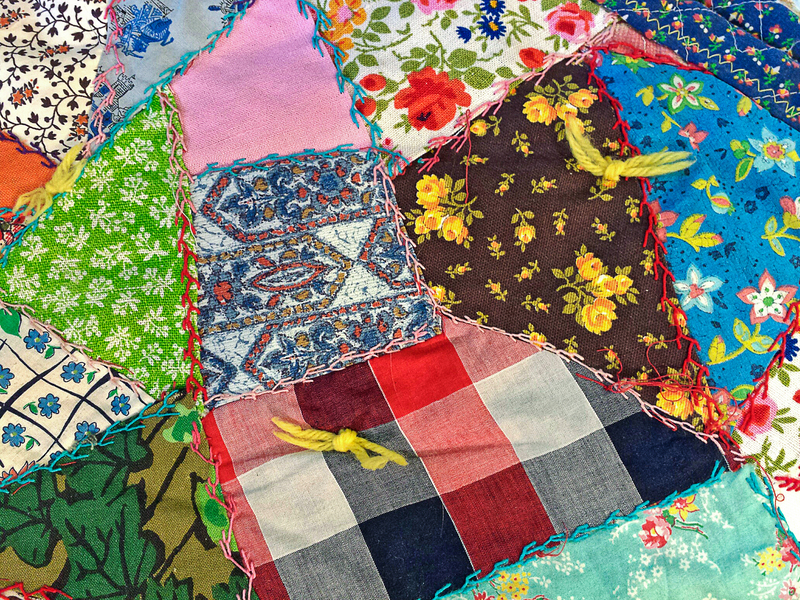Breath of Fresh Air: Experience Stress Relief through Effective De-cluttering
In today's fast-paced world, stress relief has become a priority for people seeking balance amidst their busy schedules. One powerful, transformative strategy to foster tranquility and well-being is de-cluttering your living and work spaces. This comprehensive guide explores the profound connection between de-cluttering and reduced stress, providing actionable tips and valuable insights to help you clear the chaos and breathe easier in every aspect of life.

Understanding Clutter and Its Impact on Stress Levels
Clutter is more than just a visual nuisance; it can have a significant psychological and physiological impact. Numerous studies have shown a direct correlation between cluttered environments and elevated stress hormones. Here's why:
- Clutter causes overstimulation, overwhelming the senses.
- It distracts the mind from focusing, making even simple tasks seem daunting.
- Disorganization can provoke feelings of guilt, anxiety, and embarrassment.
- A cluttered space often leads to wasted time and energy searching for misplaced items.
- Messy environments can sabotage productivity and hinder relaxation.
By understanding how physical environments influence mental well-being, you can start to appreciate the power of a tidy space as a holistic stress relief tool.
What Does 'De-cluttering' Really Mean?
The act of de-cluttering goes beyond simply throwing things away. It involves systematically organizing your belongings, letting go of items that no longer serve a purpose, and making intentional choices about what you allow into your surroundings. In essence, de-cluttering is about aligning your environment with your personal values and needs.
Why De-cluttering is Your Gateway to Stress Reduction
Breathing new life into your space by removing clutter delivers numerous psychological and physical benefits. Here's why de-cluttering relieves stress so effectively:
- Mental Clarity: A tidy space removes distractions, allowing for greater focus, improved concentration, and mental peace.
- Enhanced Control: Creating order in your surroundings fosters a sense of accomplishment and control that counteracts feelings of chaos.
- Promotes Relaxation: Clean, organized rooms invite calm and support restorative activities like meditation, reading, and restful sleep.
- Boosts Mood: Clutter-free environments reduce anxiety and depression levels, leading to a more positive outlook.
- Improved Productivity: Organization facilitates efficiency, helping you get more done with less stress.
- Better Health: Less dust and improved hygiene are a natural result of de-cluttering, creating a healthier living space.
The link between simplifying your surroundings and emotional wellbeing is undeniable. As you physically clear your space, you also symbolically clear mental and emotional burdens, taking a real step toward lasting stress relief.
Practical Steps for De-cluttering and Stress Relief
Ready to transform your space and mind? Let's explore a step-by-step approach to effective de-cluttering that fosters both immediate and long-term stress relief.
1. Set Clear Intentions for Your De-cluttering Journey
Begin by defining your goals. Are you seeking a more functional office, a serene bedroom, or simply wishing to make room for new opportunities? Setting intentions provides direction and motivation. Ask yourself:
- What do I hope to achieve by de-cluttering?
- How would a tidy space make me feel?
- Are there habits or routines I want to change?
2. Break Tasks into Manageable Chunks
Avoid overwhelming yourself by tackling one area at a time. For example, start with a single shelf or drawer before addressing larger spaces. This incremental approach ensures steady progress and prevents burnout.
3. Sort Ruthlessly: Keep, Donate, Discard
- Keep: Only retain items that serve a real, current purpose or bring you genuine joy.
- Donate: Many items can find new homes and help those in need.
- Discard: If it's broken, expired, or no longer useful, let it go without guilt.
Remember: Letting go of possessions doesn't erase memories; instead, it creates space for new experiences and lessens mental baggage.
4. Organize with Functional Systems
Once you've eliminated clutter, implement simple organizational systems:
- Use labeled bins for easy sorting.
- Adopt the "one in, one out" rule to maintain balance.
- Group similar items together in logical areas.
Systematic organization ensures that your hard-earned serenity isn't short-lived.
5. Embrace Regular Maintenance
De-cluttering is not a one-time event but an ongoing practice. Schedule monthly check-ins, and perform mini-sessions to maintain the peace in your space. Consistent upkeep makes future efforts easier and reinforces stress relief through de-cluttering.
De-cluttering Variations for Different Environments
Home: Craft a Sanctuary for Stress Relief
Each area of your home offers unique opportunities to foster well-being:
- Entryway: Keep this space clear by providing hooks for coats and a bin for shoes. First impressions matter--for guests and for your returned self.
- Kitchen: Organize pantries and countertops to streamline meal prep, minimize waste, and create an inviting hub for family and friends.
- Living Room: Store away seldom-used gadgets and decor to maintain open, breathable space primed for relaxation.
- Bedroom: Remove distractions and items without a restful function to ensure your sleep sanctuary delivers maximum restorative benefits.
- Bathroom: Toss expired toiletries and establish designated spots for essentials to cultivate a spa-like retreat.
Work Space: Boost Productivity with Cleanliness
- Sort through paperwork and digitize wherever possible.
- Designate specific drawers or trays for supplies and essentials.
- Keep only daily-use items on your desktop to minimize distractions.
- Organize cables and cords for both safety and aesthetics.
- End each day by tidying your desk to start tomorrow focused and fresh.
Digital De-cluttering: Less Clutter, More Calm
Modern life's clutter isn't just physical. Digital overload can also contribute to stress--overflowing inboxes and scattered files are mentally taxing. Here's how to manage digital mess:
- Delete or archive emails you no longer need.
- Organize files into labeled folders.
- Unsubscribe from newsletters or notifications that add noise.
- Declutter your desktop and empty your recycle bin regularly.
You'll find that digital organization makes both your computer--and your mind--run more efficiently.
How De-cluttering Enhances Overall Well-being
The benefits of living and working in tidy spaces go well beyond basic stress relief. De-cluttering can have a ripple effect on all areas of life:
- Better Decision Making: With distractions minimized, your mind is freer to focus on priorities.
- Improved Relationships: Shared spaces are sources of less conflict and more joy.
- Greater Mindfulness: De-cluttering is an act of mindfulness--engaging with your belongings thoughtfully and intentionally.
- Physical Well-being: Clean environments promote activity, better sleep, and healthier habits.
The Science Behind a Breath of Fresh Air
Numerous scientific studies support the positive link between tidy spaces and emotional well-being. A 2010 study published in the "Personality and Social Psychology Bulletin" found that women who described their homes as "'cluttered'" or "'full of unfinished projects'" were more likely to experience fatigue and depression than those who characterized their homes as "restful" and "restorative." Further research has shown that the act of cleaning triggers the brain's production of endorphins--natural mood enhancers giving you a literal "breath of fresh air."
Common Barriers to De-cluttering--and How to Overcome Them
- Sentimental Attachment: Take photos of treasured items before letting them go, and remind yourself that memories do not reside in objects.
- Decision Fatigue: Set a timer for short de-cluttering bursts to avoid overwhelm.
- Lack of Time: Integrate mini-tidying sessions into daily routines, like a five-minute sweep before bed.
- Uncertainty about where to start: Begin in the area you use most, or the space that stresses you out most.
Remember: Every small step counts. Consistency is more effective than perfection.

Tips to Sustain a Clutter-Free, Stress-Free Life
- Adopt a minimalist mindset; purchase with purpose, not impulse.
- Use storage smartly to keep surfaces and floors clear.
- Regularly schedule "clutter checks" in your calendar.
- Involve your family or housemates--shared effort delivers stronger solutions.
- Practice gratitude for the space you've reclaimed, and celebrate milestones.
Conclusion: Embrace De-cluttering for Lasting Stress Relief
Achieving stress relief through de-cluttering is not just about cleaning--it's about creating an environment that nurtures well-being, creativity, and peace. By steadily reclaiming your spaces, you empower yourself to breathe easier, both physically and emotionally. Start your de-cluttering journey today, and welcome the breath of fresh air that a simplified, intentional life provides.
For even more tips and stress-relieving de-cluttering strategies, bookmark this guide and revisit it throughout your transformation. Discover the joy, clarity, and calm that arises when you let go of clutter and embrace the serenity you deserve!
```